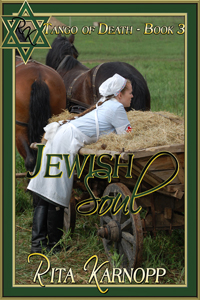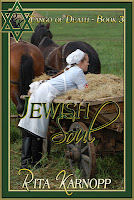It takes hard work and hours of devoted time to write a
book. There’s research, first draft,
second draft, edits, revisions, submissions, rejections, promotions, blogging,
and even marketing. Those are probably some
of the reasons not everyone writes. If
it was easy – everyone would be writing, right?
I’ve often heard the comment, “A person needs a reason to
write.” Is that true? Maybe in ways it is. Maybe it’s therapy and a way of expressing
ourselves, a way of making a point on an issue, or a way of sharing our
experiences.
So let’s talk about how we can fuel the angst in our lives into
something positive and use it as fodder for our stories. My book, Kidnapped, is the result of my
frustration of not being able to have children.
The what-ifs started. What if a
couple, struggling to get pregnant for years - decide to adopt? What if hey finally get the daughter they’ve
been longing for, and she has adorably wrapped them around her little finger –
but the marriage is seemingly over. Then
what if they independently discover the daughter they love appears to be an
abducted child? You can only imagine the
heartache and devastation this might cause.
Take those ‘heartache’ times in your life, or those of people
around you, and turn them into a page-turning book. What struggles have you had in your
life? A great example of inspirational
writing from struggles is blind, deaf and mute writer Helen Keller—who authored
several bestsellers in her time—wrote, “I thank God for my handicaps, for
through them I have found myself, my work and my God.”
How about writing for revenge?
I have to admit, when I shared I’d like to write a book I received more
ridicule and negativity – than I did support and encouragement. It’s a discouraging world if you let it
be. I decided I wanted to write and see
my name on the cover of my book. I
didn’t care how many people thought it couldn’t happen. Writing that book(s) is the best way to say,
“I did it, so don’t tell me I can’t.”
It’s a little bit of sweet revenge.

Frustration can also be a catalyst for deciding to write. You ever want to make a point or just plain
make people aware of a situation . . . and you keep getting told, “That’s not
worth sharing - people just don’t care.”
Yep, me too. So I wrote my Tango
of Death Series; Gypsy Spirit, Partisan Heart, and Jewish Soul, because I still wanted to share with
the world that Gypsies were persecuted by the Nazis just as ruthlessly as the
Jews. I felt in my heart their story
needed to be told.
We all know of stories the world should hear. You could be the
one who finds a way to tell them.
Consider writing from the place of fear or trauma. Turn those experiences into books that only
you can truly write. Whether you were in
a bank when it was being robbed or you were in a car accident that left
everyone dead – but you.
Are you familiar with a social injustice that still haunts
you? Take that viewpoint and work it
into a story that will show others just how wrong abuse can be . . . or the
laws that protects abusers. Yes, you’re
writing fiction – that doesn’t mean you can’t make a point – and open the eyes,
hearts, and POV of your reader.
In an interview on Amazon.com about his latest novel, Another Life, Vachss says, “My goal was
not to raise consciousness, but to raise anger.” Think about it – collective anger gets
results.
You can also write inspirational stories resulting from medical struggles
– the human spirit is like no other.
People love to read about resounding triumphs - or the struggle of
accepting the inevitable with grace, fight, and inspiration. People never tire of the – succeeding against
all odds. Don’t sugar-coat it – tell it
like it is.
Make your reader uncomfortable, share your heartache, your struggles,
your triumphs, and even your vulnerability at the bottom – then reveal how you conquered,
loved, and prevailed. Write what you
know – just bring it to life between the pages of your book





.jpg)



.jpg)
.jpg)
.jpg)


.jpg)
.jpg)
